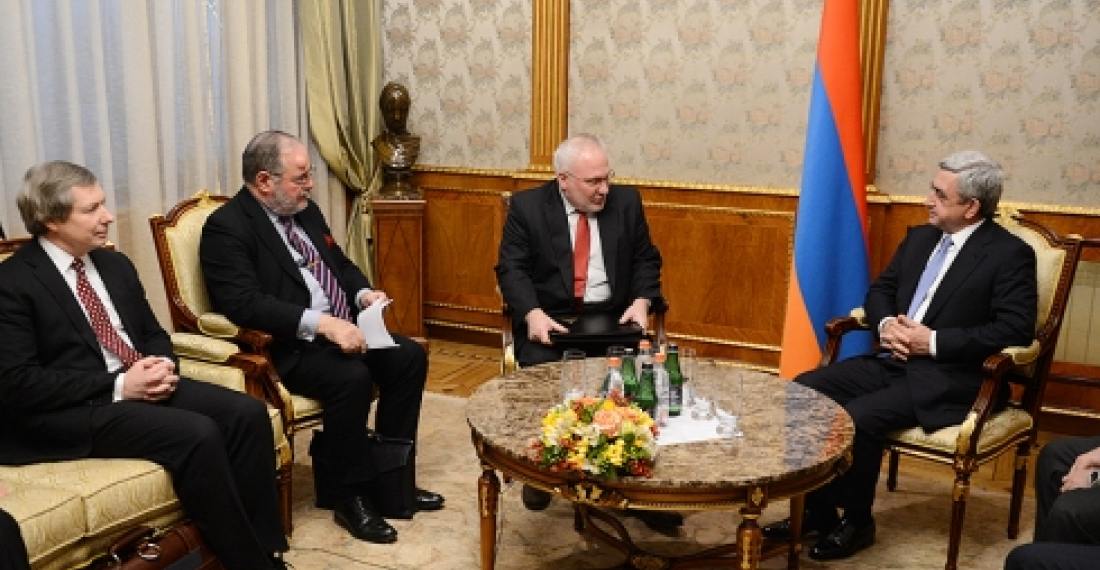Дипломаты Минской группы ОБСЕ завершился визит в Ереван, где встретились с президентом Саргсяном и министром иностранных дел Налбандяном. Дипломаты прибыли в Армению из Азербайджана, где они встретились с президентом Алиевым и министром иностранных дел Мамедъяровым, а также новым министром обороны Азербайджана Гасановым.
Дипломаты пытаются найти достаточно точек соприкосновения между двумя сторонами для проведения еще одной встречи между президентами двух стран в ближайшие недели. По крайней мере, одна из сторон высказалась против бесконечных встреч, но в то же время обе стороны вновь заявили о своей приверженности к мирному разрешению конфликта с помощью посредничества Минской группы.
Высоко в повестке дня нынешнего визита дипломатов Минской группы стояла ситуация на линии соприкосновения, где резко в течение первого месяца 2014 года возросло количество инцидентов. Этот вопрос был поднят двумя президентами, но обе стороны обменялись взаимными обвинениями по этим инцидентам. Режим прекращения огня, который действует в течение последних двадцати лет, в значительной степени не контролируют. Обе стороны постоянно сообщают о сотнях нарушениях каждую неделю. Большинство жертв за последние годы были результатом снайперского огня и поэтому дипломаты Минской группы подняли так высоко вопрос отвода снайперов в своей повестке дня.
Источник: commonspace.eu
фото: Президент Армении Серж Саргсян с дипломатами Минской группы ОБСЕ в Ереване, 5 февраля 2014 года. (Фото любезно предоставлено пресс-службой президента Армении).






